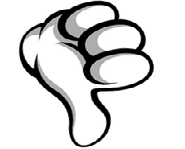Analysis

December 9, 2022
US Govt, Domestic Steel Boo WTO Section 232 Decision
The federal government and the domestic steel industry lashed out against a World Trade Organization (WTO) decision ruling that the US violated international trade rules with Section 232 national security tariffs on steel and aluminum.
![]() The WTO on Friday, Dec. 9, ruled in favor of Norway, which challenged the Section 232 tariffs – 25% on steel and 10% on aluminum. Section 232 was implemented with an executive order from former President Donald Trump in 2018. The tariffs have remained in place under President Joe Biden, although they have been significantly scaled back against US allies such as the European Union, Japan, and the United Kingdom.
The WTO on Friday, Dec. 9, ruled in favor of Norway, which challenged the Section 232 tariffs – 25% on steel and 10% on aluminum. Section 232 was implemented with an executive order from former President Donald Trump in 2018. The tariffs have remained in place under President Joe Biden, although they have been significantly scaled back against US allies such as the European Union, Japan, and the United Kingdom.
The US signaled it would challenge the WTO ruling. The nation “strongly rejects the flawed interpretation and conclusions in the WTO Panel,” Assistant United States Trade Representative Adam Hodge said in a statement on Friday.
“The Biden Administration is committed to preserving US national security by ensuring the long-term viability of our steel and aluminum industries, and we do not intend to remove the Section 232 duties as a result of these disputes,” he added.
“The United States has held the clear and unequivocal position, for over 70 years, that issues of national security cannot be reviewed in WTO dispute settlement, and the WTO has no authority to second guess the ability of a WTO Member to respond to a wide range of threats to its security,” Hodge continued.
USTR Katherine Tai is a member of Biden’s cabinet and a primary advisor and negotiator on trade issues.
The United Steelworkers (USW) union, the Steel Manufacturers Association of America (SMA), American Iron and Steel Institute (AISI), and Nucor Corp. also criticized the WTO ruling and lauded the US decision to fight it.
Both the USW and AISI said the WTO had overstepped its mandate.
“The United States was right to ensure that we could meet our national security and critical infrastructure needs in steel and aluminum with domestic production,” USW international president Tom Conway said in a statement. “But instead … the WTO is trying to tell America how we can protect ourselves.”
AISI president and CEO Kevin Dempsey echoed the sentiment.
“Each member of the WTO has the right to determine what action it considers necessary to protect its own national security, and today’s panel ruling disregards this central feature of the WTO system,” he said in a statement.
Going further, he said, “The WTO has no authority to second-guess the U.S. government on matters of our national security.”
Conway thinks the US actions have been effective so far. “Section 232 relief helped to promote production, investment, and job creation, while keeping America safe.” The US must maintain the tariffs and “refuse to bow to the misguided efforts of the WTO lawyers,” he added.
Likewise, the SMA cheered the US for challenging the WTO. “We support the United States government’s refusal to accept the conclusions of today’s World Trade Organization Panel reports involving challenges to the United States’ Section 232 national security measures on steel,” SMA president Philip K. Bell said in a statement. He, too, stressed that the US does not intend to remove the Section 232 duties.
The SMA and AISI both noted that the decision only underscores that change is necessary at the WTO.
“These convoluted reports underscore the need for WTO reform and highlight the ineffectiveness of body in dealing with global excess steel capacity and market distorting behavior,” Bell said.
AISI’s Dempsey said this decision highlights once again “why significant and systemic reform of the WTO dispute settlement system is essential” to ensure all WTO members’ rights are fully protected.
Electric-arc furnace steelmaker Nucor agreed. “The WTO’s recent decision is one more example of overreaching and further undermines the legitimacy of the WTO dispute settlement system,” Nucor president and CEO Leon Topalian said in a statement. “Reform of this broken system is long overdue,” he added.
The unified voice is notable because the USW is the pre-eminent steel union in the US. Nucor, meanwhile, is a non-union EAF steel producer.
The US negotiated tariff-rate quotas (TRQs), or “soft: quotas, to replace Section 232 with the European Union, Japan and the United Kingdom. Other nations, notably Brazil and South Korea, are subject to a “hard” quota rather than a 25% tariff. And many exclusions to the tariffs have also been granted.
But Section 232 remains controversial. China, India, Russia, Switzerland, and Turkey have also challenged the tariffs at the WTO.
By Ethan Bernard, Ethan@steelmarketupdate.com





